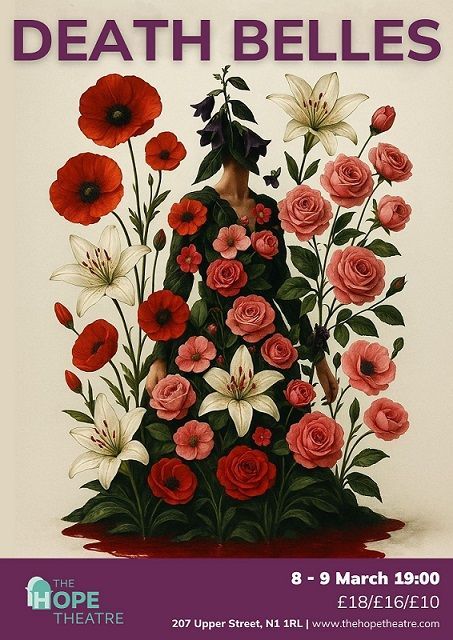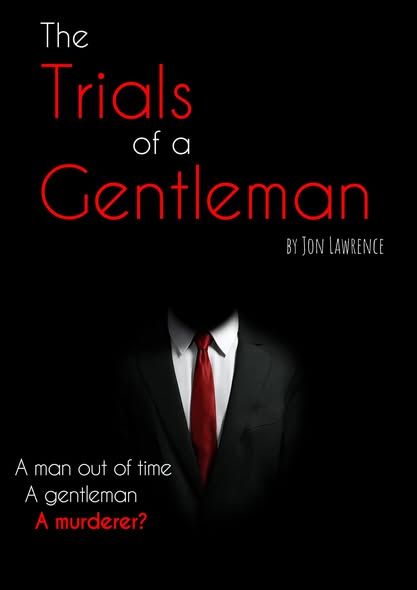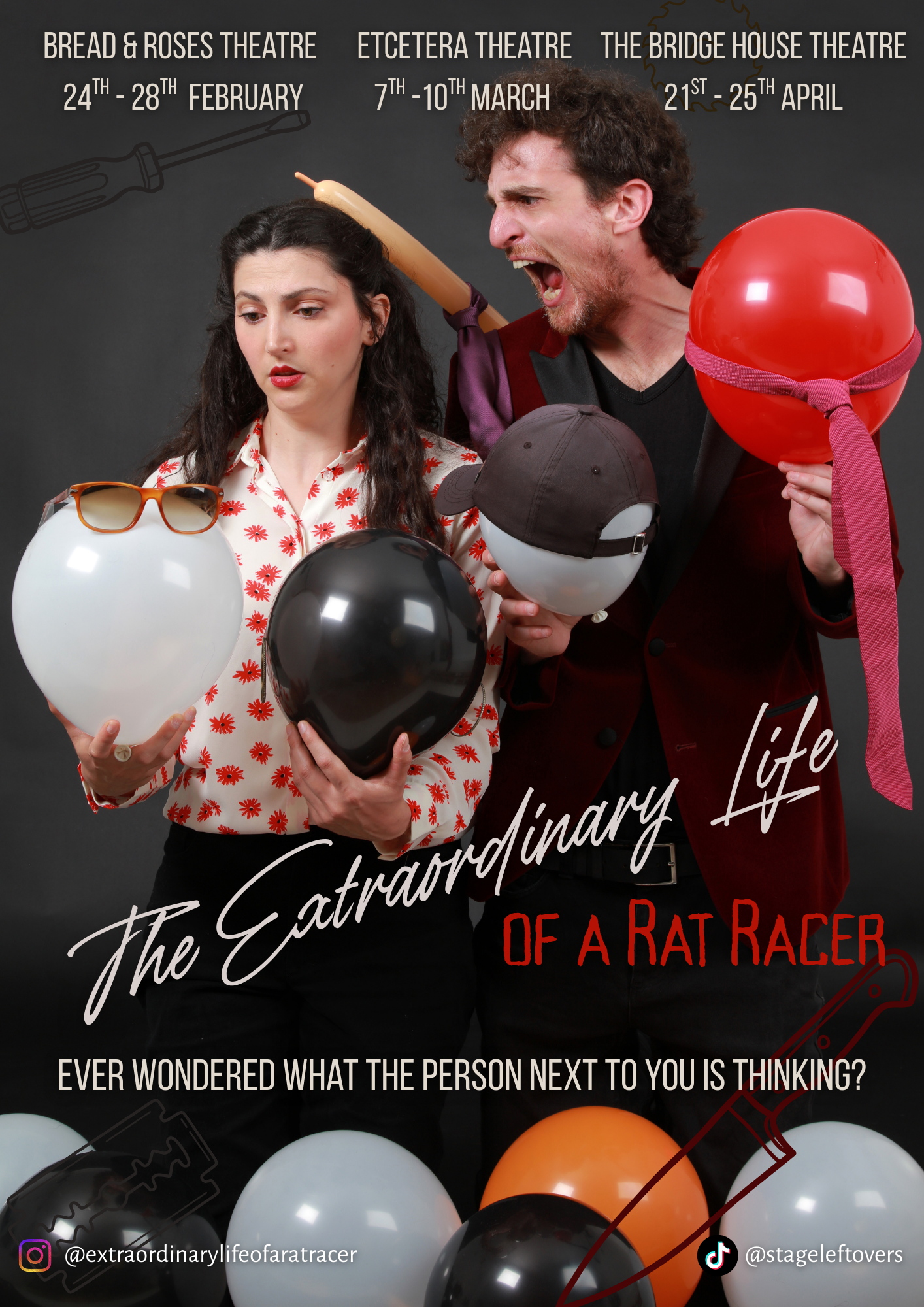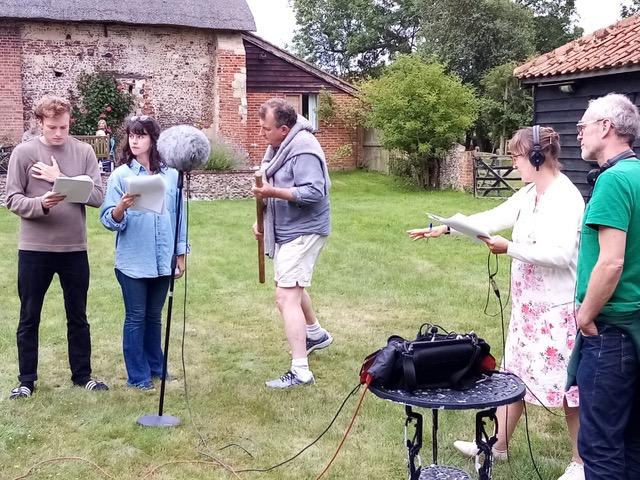Colonel Fazackerly Butterworth Toast,
Bought an old castle complete with a ghost.
This piece of poetic doggerel encapsulates my knowledge of the War of the Roses. In other words, and not to put too fine point on it, I know ‘zilch’. This was rather unfortunate as I was offered my first ‘acting’ work, post Covid, with an audio piece entirely set during this tumultuous period of English History. The work was to be based on those brilliant books by Toby Clements “Kingmaker: Winter Pilgrims”.
The first book, masterfully adapted by Gregory Evans, had been divided into five parts. The production was to be made in the grounds of Leiston Abbey, in Suffolk. The whole thing sounded to me like bliss. I urged my agent to accept, no matter what financial package was offered. (The telephone went eerily silent at this point.)
"First things first Richard", said my director Fiona McAlpine, "all the read through and rehearsals will be socially distanced and we will be using Zoom". My understanding of technology, as many of you will know, matches my knowledge of the War of the Roses. When the term ‘Zoom’ was used I thought we would be rehearsing with iced lollies. I was quickly brought up to speed and told I would be using the internet to ‘Zoom’ across the ethosphere. (To boldly go where no man has gone before as Captain Kirk would have it.)
So come the ‘read though day’ I found myself excited, extremely nervous and completely unable to find ‘the room’ I was supposed to be in. I did though find some very interesting ‘porn’ sites and a camera that was fixed to the bottom of Loch Ness looking for the monster. (As far as I could tell, through the murk, ‘Nessie’ hadn’t been found.)
Suffice to say, with the help of a daughter, I managed to get to where I was supposed to be. I was then confronted with at least twenty- very bored- members of the production (‘en pointe’ or was it ‘on tile’?) who’d obviously been waiting for some time for me to make my entrance. I tried to make light of my idiocy, quoting from Hamlet, ‘the vacillating Dane’. This was met by a fairly stony response and I thought it best to keep my own counsel.
The character I was playing didn’t appear until quite late in the first episode and announced his arrival with a soliloquy summing up all that had gone before. I decided to give this speech ‘some welly’. I emoted for several minutes and then looked back at the screen, rather pleased with myself. Everyone was staring at me. My first thought was that I had stunned them all with theatrical brilliance. But the pause went on. And on. Then a message appeared on my screen saying, bluntly: 'UNMUTE'. I jabbed at a button to hear our diligent director apologising to the assembled ranks, “He’s a little slow. He’ll catch up with the rest of you. Eventually. I promise”.
Leiston Abbey is one of Suffolk’s most impressive monastic ruins. It lies in peaceful open fields. It has buildings that are covered with creeping ivy and lush vegetation. It is a bucolic dream. And yet it is a mile south from Sizewell B. I wish I could report that Sizewell B is anything but a very frightening nuclear power station. It isn’t.
My tour guide at the Abbey told me that the monastery had been home to Augustinian Canons who followed the premonstratensian rule. This term, I assumed, meant they had taken a vow of silence. So, I indicated my understanding and gestured that my lips were sealed- with the buttoning of my mouth I thought I was expressing solidarity with the Cannons. My guide assumed I was a complete idiot and told me the Cannons wore white and worshipped St. Norbert. Now call me a pleb but I do find that the name Norbert is difficult to give due obeisance to. My less than reverential attitude- I sniggered quite alot, if truth be known- was noted.
Production had thought out things quite wonderfully. Most scenes were outside- and socially distanced. (The length of a halberd defining the distance- a nice medieval touch I thought.) Huge amounts of Perspex separated everyone. There were face masks galore. And gallons of sanitizer. Nothing had been left to chance.
My first scene was on horseback. (an imaginary horse of course). The director told me to ‘mount up’ and be ready to speak. At this point my enthusiasm knew no bounds. I rode my-imaginary- horse for at least five minutes before I had to start declaiming. Come the time of my entrance I was totally knackered.
"Cut. Cut. Cut. What is the matter Richard?", said my concerned director, "you sound as if you are about to have a seizure."
"Permission to dismount?" I choked.
"Granted", said my director.
"I think my character" I wheezed with some passion, "would make his entrance on a Palanquin".
After some discussion (and probably because I was lying on the grass entirely comatose) it was decided I should make a more sedate entrance. My young co-stars- the very brilliant Sophie Walter and Will Fletcher- were most sympathetic. Or pretended to be. ... Cont.
"Next up’" said our very chirpy director, "is the tramping of the armies through the fields on their way to the Battle of Towton. Richard you can be in this as it’s a very sedate scene".
An area of Leiston Abbey, outside of the main walls, had been prepared as the site ‘for tramping’. The ground was covered by all sorts of lush grasses including Meadow Foxtail, Yorkshire Fog, Cocksfoot and Lady Timothy. If one wanted to be poetic the grasses were as high as an elephant’s eye- and it looked like they were climbing clear up to the sky. The trouble was, at this moment in my life, I didn’t feel like being poetical at all. All I could think of was that this verdant undergrowth might be hiding various poisonous grass snakes.
I decided cowardice was the best form of self preservation. I stood very much to the back of the ‘tramping’ armies, where the grass had been flattened by production. On action I ‘tramped’ away-lightly- and muttered to myself, in what I thought was ‘cod medieval’ of the indignities that an actor has to endure.
"Cut. Cut. Cut", said our very zealous director, "Richard what are you doing? You are right in front of the ‘tramping’ microphone. I can hear everything you’re saying, and it doesn’t sound very medieval to me".
Fortunately, at this moment in my life the bird Scare-efier (sic) sounded. Now I haven’t told you about this very clever invention. Usually on any set the sound man throws his hands up in horror at a passing Jumbo 747. His ears ‘pop’, as do his equipment. During Covid, of course, very few planes were in the sky. The sounds of aviation though were more than compensated for by the songs of our aviary friends.
There were so many birds Alfred Hitchcock would have been in ecstasy. And the extraordinary thing was they all sang at the same time. It was as if they were worshipping at the feet of St. Norbert. Perhaps they were. There were Nightingales, Blackcaps, Blackbirds, Pigeons, Woodlarks, Mistle Thrushes, Skylarks, Herring Gulls, Golden Eagles (sorry, I’m kidding about the Golden Eagles), etc. Going on forever. To the layman it seemed quite unbelievable, especially as these birds seemed to be in league with each other.
So, to compensate, production had devised a bird Scare-efier. Now this produced a sort of hybrid sound: first a hooting-think the QE2 -a raucous claxon, alongside a whooshing bang as if it were a nuclear deterrent- that could have come from Sizewell B. On first hearing this I fell to the ground, like a wounded gazelle. My ever assiduous director explained what had happened. She pointed out, in monosyllables, what the sound was, as if I was a three-year-old. As I was weeping uncontrollably at the time, this was probably the right approach.
I slowly got to my feet and thanked the Gods that I was still alive. I thanked Dionysus-not only for wine- but for theatre in general. And like all actors I thanked my lucky stars I was gainfully employed. This wretched virus hadn’t stopped me yet. As a great statesman once said, when we were engaged in another fight, “this is not the end. This is not even the beginning of the end. But it is the end of the beginning”.
The hooter then went for lunch and I knew poetry would be my saviour.
And then with a smile that was hard to define
Colonel Fazackerly went into dine.
To find details of this rather wonderful production- and lots more- please go to:
https://kingmakeraudio.com/
More about the books:
towton-productions.com/kingmaker
Richard Braine is actor, director and playwright.
As an Actor he has worked extensively throughout the country including Chichester Festival Theatre, Manchester Royal Exchange, Birmingham Rep, and Stephen Joseph Theatre in Yorkshire. His Television and Film credits include: “Calendar Girls”, “Pride, Prejudice and Zombies”, “Finding Neverland”, “Bridget Jones”, “Suspicions of Mr Whicher”, “Mr Selfridge” and many years ago Gussie Fink-Nottle in “Jeeves and Wooster”. He has also filmed over 150 Commercials all over the world.
He has directed the European premiere of Sternheim/Martin “The Underpants” at The Old Red Lion Theatre and written three plays: “Being There with Sellers”, “Bedding Clay Jones” and “Sexing Alan Titchmarsh”.










